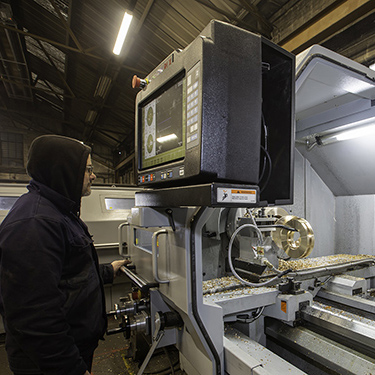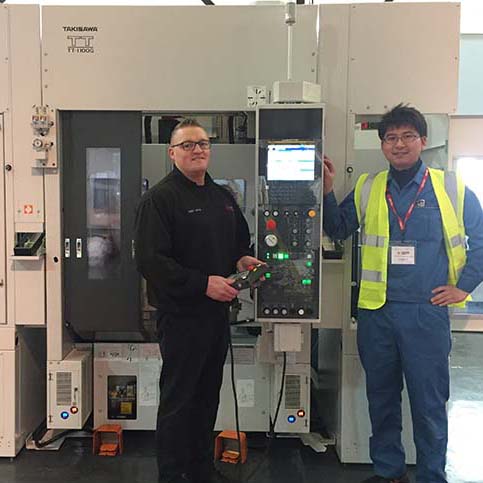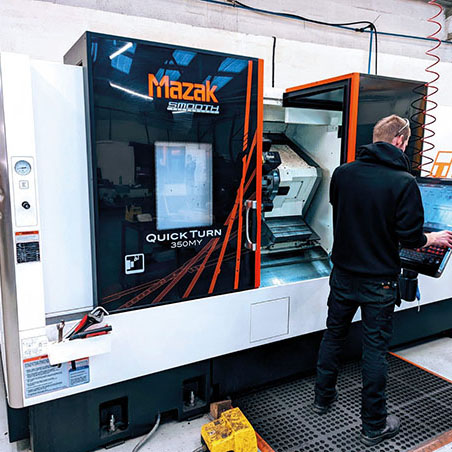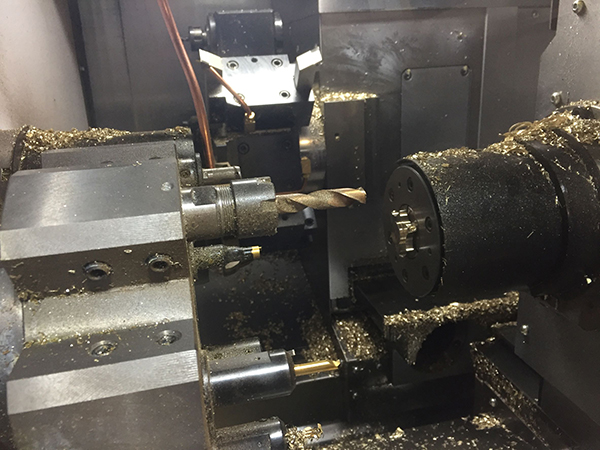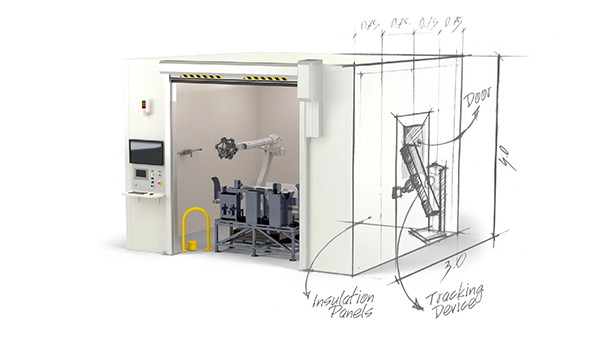
Starting out from fairly humble beginnings under railway arches in Camden, London in 1937, DYN Metal has grown into one of the largest suppliers of continuous and centrifugal cast products, specialising in standard bronzes and its own DYN processed bronzes. The company casts all of its products in-house at its Acton foundry, where the business relocated to in 1977.
Following that relocation, the family owned business recognised that simply providing cast billets for others to machine was not sustainable, so a series of investments were made to develop its own machining capability.
“We recently needed to improve productivity in our proof machining department in order to increase throughput and consistency,” says managing director Max Limbourg.
It was a combination of the ProtoTRAK control and a UK supplier for support that saw DYN Metal settle on two ProTURN lathes from XYZ Machine Tools. The machines are an XYZ ProTURN RLX 555 with a 1.75 m bed length and, the largest machine in the ProTURN range, an XYZ ProTURN RLX 780 with a 3 m bed length and swing of 780 mm over the bed.
Both machines feature the latest RX ProtoTRAK control system with its touchscreen interface and conversational programming capabilities. A key feature of the control welcomed by DYN Metal was the TRAKing capability, which allows the operator to use the electronic hand wheels to prove out the program.
“Coming from manual machines, our operator Peter had limited programming experience so it was a bit of a learning curve,” says Limbourg. “However, with support from XYZ Machine Tools he is now producing one-off components in a matter of minutes.”
For further information
www.xyzmachinetools.com






